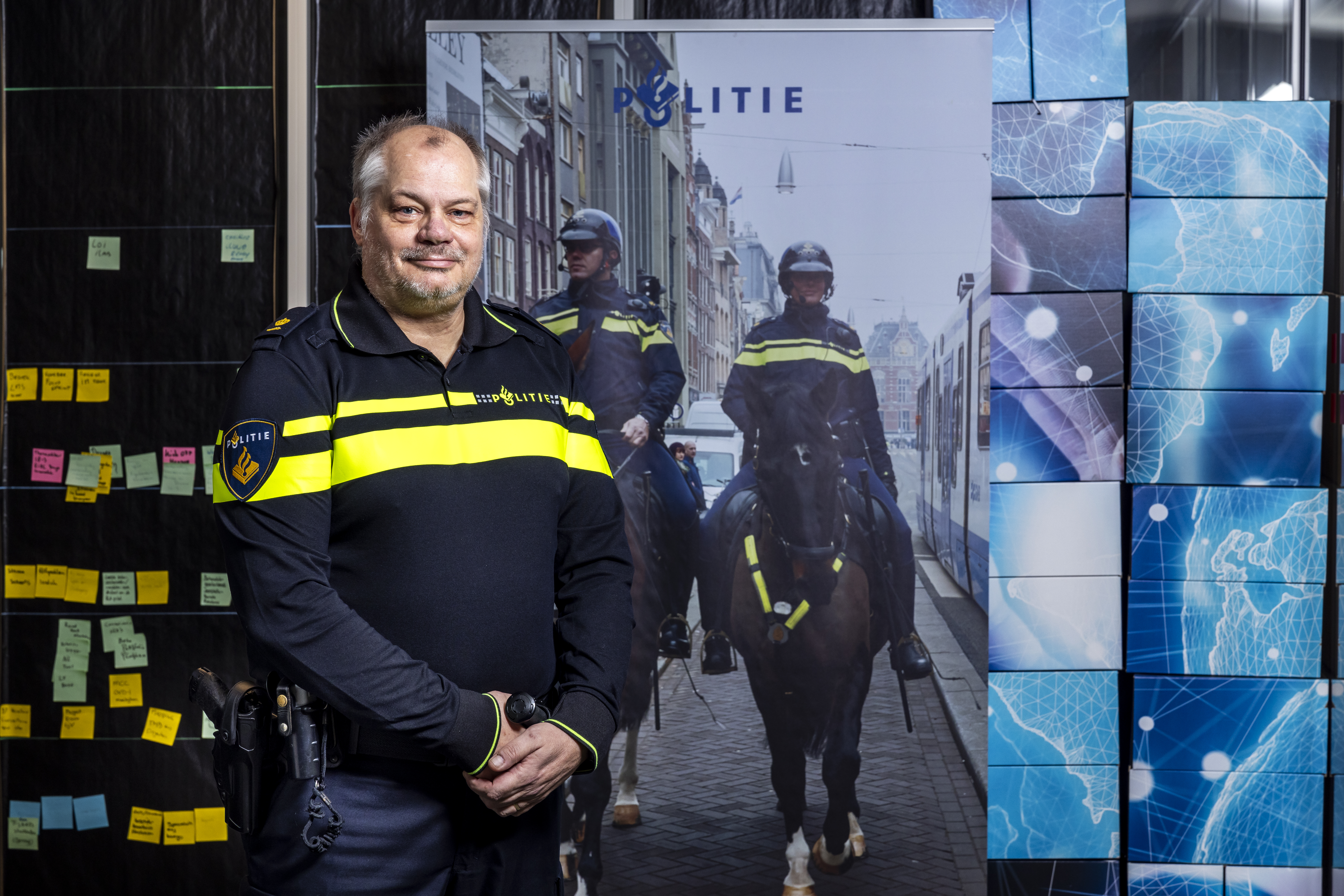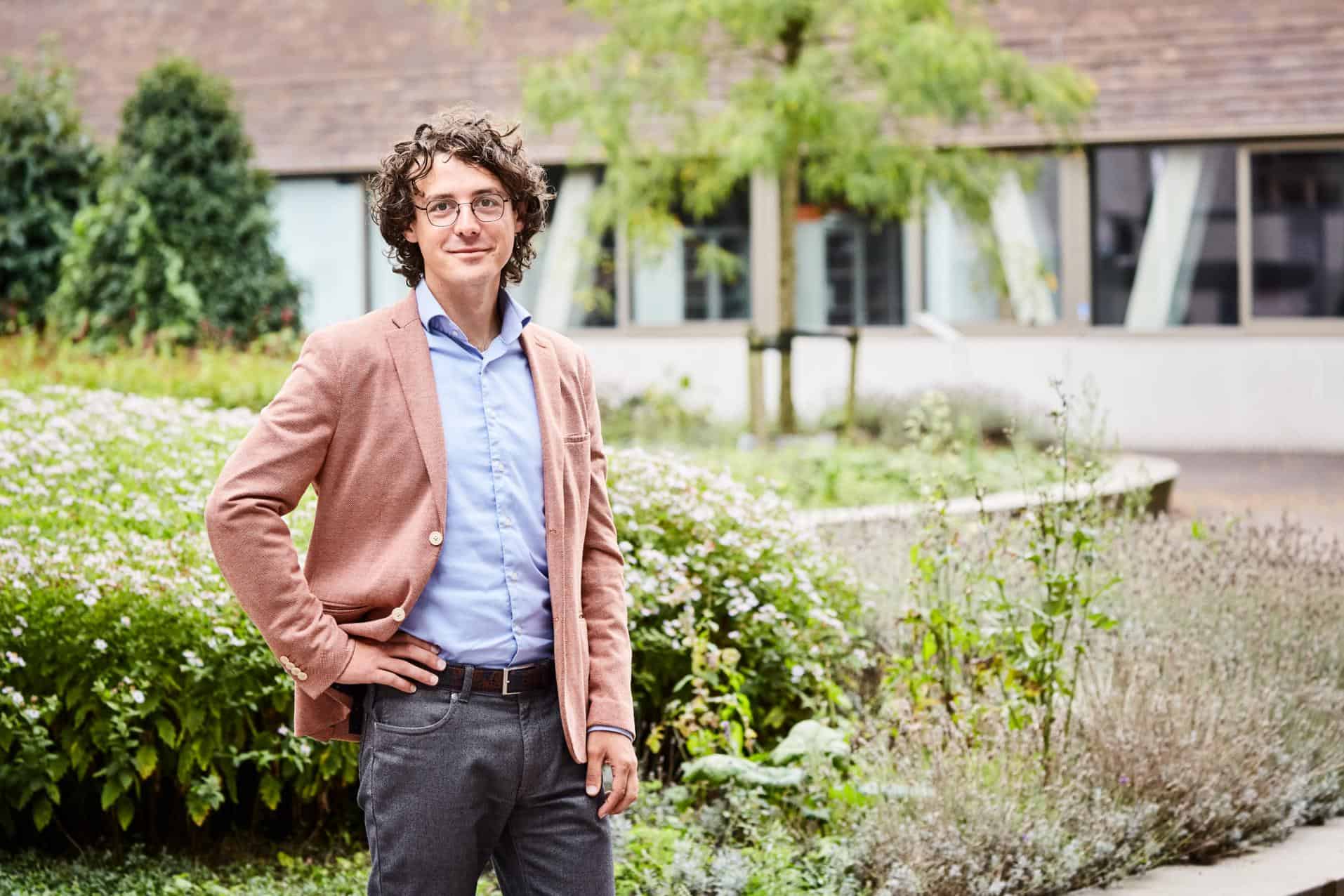
The professor gazed out the train’s window and took time to reflect on things. This filled him with a sense of happiness. He also enjoys thinking ahead, although forethought is a process that does cost more energy and which requires focus. Focus, in order to get on the right track. You don’t have to do any of that when you reflect on things. He simply gave his thoughts free reign and followed them.
He’d just given a lecture about all the data that large data companies collect on us. And especially concerning the fact that these parties now have much more data about The Netherlands and its citizens than our national government does.
“Theoretically speaking,” he had stated, “these companies can make public transport more efficient than the NS (Dutch public train service) does. Following a dramatic pause, he added: “In theory, these companies can track crime more efficiently than the police can.”
He had contended that this data inequality undermines our democracy. But no one seems to care. And that was what troubled the professor.
He had shown that Google has on file data which belonged to one of his students. The student had entrusted her digital life to science. The professor thought that was a brave decision. If she gave her body to science after she died, it would reveal less about her identity than the data that Google held on her.
The file contained bookmarks of the web pages that the student had visited, all of her e-mails and her list of contacts. The phones she had used in recent years, together with the applications that she had installed on them. Plus where, when and what she had used them for. Her diary was also visible. As well as the locations where she had been – to within 5 meters in most cases. All her meditation, yoga, walking, cycling, and running sessions could be revealed on a map. Angle changes of more than 90 degrees made by her phone were also recorded. Even items that she thought she had deleted, such as different versions of her CV, letters to her deceased father, and her personal financial planning could all be traced.
It was a disconcerting exercise and the student had to shed a few tears because of it.
Sneezefest
Achoo! The traveler sitting diagonally across from the professor sneezed hard. “Excuse me,” he muttered. The professor noticed that the man had sneezed neatly into his inner left elbow. In full compliance with the most recent etiquette. But he also noticed that the man then wiped the elbow of his jacket with his right hand. It was the same hand that he used to drink his cup of coffee with. The same hand that offered his public transport card to the ticket inspector. That touched the door handle, shook his colleague’s hand and that he used the ATM at the supermarket with.
The professor looked out of the window again and thought about how the contact research is being carried out by the RIVM (the Dutch National Institute for Public Healthand the Environment). Researchers phone a patient and ask where they have been and who they have been with over the ensuing period. They then call those people to ask whether they have any health complaints. And if so, who they have been in contact with.
When people have led an organized social life over the ensuing period, this kind of research may well still be viable. But when the number of infections rises, or when international travel or large events play a role, it becomes almost impossible to carry out reliable research this way.
Google tracks everything
The professor thought that if we really wanted to understand, combat and prevent infectious diseases, we should turn to Google. The company would not only be able to provide insight into where a patient had been, but also into who was within 5 meters of that patient at any given time. Google would be able to see who sat together on a train or plane. Whoever went to the same event together. Or who used certain sanitary facilities after each other. It would then be possible to map out where all these people have been since then. As well as who they have subsequently been in contact with.
Google would then be able to see whether these people did a word search for terms such as ‘fever’, ‘coughing’, or ‘respiratory infection.’ And whether they actually kept the appointments in their calendars. The company would be able to see if the number of angle changes on their phone has changed over the ensuing period. If they have played sports and if their sports performance matches previous sessions.
Cause for thought
The train slowed down. Of course, Google’s overview of the world isn’t complete either, the professor thought. But he is absolutely fascinated by the the idea that one company has the most comprehensive overview of the world that there ever has existed. Google is very good at thinking ahead. Fifteen years ago, the company had already thought ahead about the potential of data. And not only had it thought ahead, it had acted in advance too. This had created an unbridgeable advantage over government agencies that are still weighing up the potential of data.
About this column:
In a weekly column, written alternately by Tessie Hartjes, Floris Beemster, Bert Overlack, Mary Fiers, Peter de Kock, Eveline van Zeeland, Lucien Engelen, Jan Wouters, Katleen Gabriels and Auke Hoekstra, Innovation Origins tries to figure out what the future will look like. These columnists, occasionally joined by guest bloggers, are all working in their own way on solutions to the problems of our time. So that tomorrow is good. Here are all the previous articles.
Support us!
Innovation Origins is an independent news platform that has an unconventional revenue model. We are sponsored by companies that support our mission: to spread the story of innovation. Read more.
At Innovation Origins, you can always read our articles for free. We want to keep it that way. Have you enjoyed our articles so much that you want support our mission? Then use the button below:








